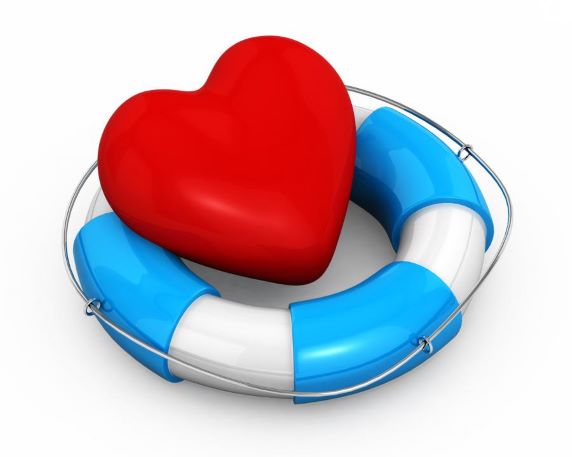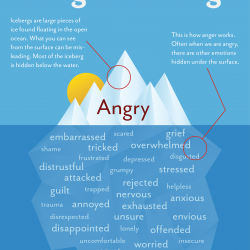Estimated reading time: 7 minutes
People often come to see me when there’s a conflict in their relationship and they need a relationship rescue.
You just can’t have a successful and happy relationship without learning to manage conflict first. This is a crucial step in relationship rescue. If you’re caught either in avoiding conflict or in fighting all the time, you may be thinking “I love you, but I’m not in love with you”. I hear this comment often and many times find there’s unmanaged conflict behind it.
Try a relationship rescue before separation
Perhaps you’re thinking about separation as a way to stop the ongoing tension between you. Maybe you’re trying to work out how to do that or whether separation is the right answer. My suggestion is, unless there’s abuse, first see if you can learn to manage your conflict. You can do this via online relationship coaching, in-person fortnightly sessions, or by doing a private two day couples intensive retreat just with you and your partner. Then you can explore the range of options available, once you have a clearer head.
Conflict is inevitable in every relationship. I call these “normal relationship conflicts” because they’re due to differences in your personalities as well as differences in your lifestyle needs. Every couple needs to learn how to manage these.
Relationship Rescue
Learning to manage conflict and to fight well is the way we grow and develop as human beings. In fact, conflict often happens whenever differences emerge in any setting, be it work, relationship or play. No two people have the same personalities or needs at exactly the same time or in the same way.
But be warned. If you’re caught in repetitive and escalating conflict, whether it’s passive and avoidant or aggressive and explosive, be aware that this is very destructive to your physical, emotional and mental health. It is one of the major causes of stress to individuals, couples, families, and most importantly children. It’s often the biggest predictor of relationship failure and breakup.
Sometimes affairs are symptoms (not causes) of unmanaged conflict in the relationship. Think about managing relationship conflict like taking a pain pill for a headache. While you’re in pain (conflict) it’s impossible to concentrate well. But when the medicine kicks in (learning to handle conflict well) and you get relief from the pain, you can start to explore what are the real underlying causes of the headache/conflict.
Naturally, couples express conflict in a variety of ways. One way to understand this is to think about a scale along which people fall – a relationship conflict scale, which runs from left to right.
Relationship Conflict Scale.
You might need a relationship rescue if you fit into one of the three categories below.
1. “We Never Fight.”
You may be on the far left of the conflict scale where you don’t fight. Just because you don’t openly express conflict doesn’t mean you’re not having conflict. Individuals in conflict-avoidant relationships may be extremely resentful and angry with each other – you just don’t express your anger directly or clearly.
Sometimes only one of you is angry, and neither you nor your partner know it, or may deny it. If you’re in one of these relationships, probably somewhere in the past you made a decision, either overtly or covertly, that openly discussing differences is not allowed.
You may have learnt this conflict avoidant style in your family of origin, either because your parents passively avoided fighting, or because they constantly had conflict. You may have learnt that conflict and disagreement are too uncomfortable or dangerous, so you tend to avoid them at all costs.
But unexpressed feelings are very stressful on you. If you do this, you may experience physical symptoms, like headaches or digestive problems, as well as worry, anxiety, and depression. These drain a lot of energy from you and your relationship. There are 3 steps to doing this. It is a process called differentiation which involves:
- learn how to tune in to yourself & identify your thoughts, feelings & needs
- turn to your partner & express these clearly
- learn to manage your own reactions if your partner doesn’t agree.
Sometimes you may not even be aware of how upset you are with your partner, but you know you’re feeling drained by the relationship. Children may also act out their parents’ unexpressed conflict through rebellious, angry or shut down behavior at home, school or socially.
2. “We Fight All the Time.”
You might be at the other end of the conflict scale, where you erupt into aggressive and sometimes explosive anger and conflict. I often hear about fighting and arguing between couples in my counselling sessions. You might be struggling with being unable to stop the conflict from escalating. In extremes, your fights may become physically abusive and violent, or there can be emotional and verbal abuse. This is totally unacceptable and must be stopped immediately. There is no excuse for abuse – ever. You must seek help for this at once. Call RESPECT or start doing an anger management course.
Another variation I hear is that you may get stuck in a cycle of angry and hurtful exchanges that can go on for long periods of time. You must learn to control conflict and fight fairly. I can teach you to learn these skills in a safe environment, either online or in my practice.
3. Everyone Else.
If you’re not at the extreme left or right of the conflict scale, you fit somewhere along the middle. It can be challenging when one of you is at one end of the scale and your partner is at the other end. Or when one of you is mainly at one end but occasionally “flips their lid” and goes to the other end. A usually passive person might store up feelings and then occasionally explode and “lose it”.
Keep in mind that there are conflict goals for you to learn to manage. Those who know how to express their desires, needs, feelings (including anger), beliefs and differences in an open and clear manner are around the center of the conflict scale. This is where assertiveness sits, as well as the ability to make an effective apology. Everyone gets emotional at some time or another. But these people are neither overly passive nor explosive.
The goal in counselling is to help you and your partner move from either end of the continuum toward the center, where you can express your wants and desires clearly and have them be heard without defensiveness. Here is an anger awareness temperature gauge with skills for each stage to help you.
Download a free pdf for the anger iceberg here.
I usually coach people to identify and name what they’re feeling. This is often a difficult exercise, especially as we can have a few feelings at the same time. I provide a list of feeling words, which makes the task easier and is a useful tool when beginning to think about feelings.
Reach out for help
If you have reached some sort of crisis in your relationship, are taking each other for granted or you’re not sure what action to take, you may need a relationship rescue. If your conflict patterns are not working for you, call 0421 961 687 or email us to schedule an appointment. International callers should call +61 421 961 687.
You deserve the best trained relationship coaches if you’re planning to invest time and money in your relationship. If you’re not ready to book an appointment, call us on 0421 961 687 to book a FREE 15 minute phone consultation to discuss how we may be able to assist you.



Leave a Reply